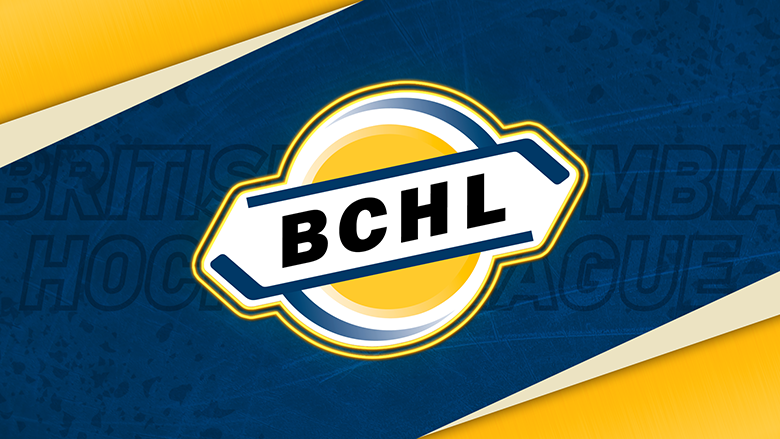The BCHL season starts tonight under strict COVID-19 safety protocols as agreed upon by the league and the Office of the Provincial Health Officer. The person who is in charge of overseeing the health and safety protocols of the league is Dr. Bob McCormack, who has been hired as the BCHL’s Chief Medical Officer.
Dr. McCormack is an orthopedic surgeon, working out of Eagle Ridge Hospital in Coquitlam and Royal Columbian Hospital in New Westminster. Beyond his duties there, he is also the head doctor for the Canadian Olympic Team, the BC Lions and a team doctor for the Vancouver Whitecaps.
We sat down with Dr. McCormack to discuss his involvement with the 2020-21 BCHL season.
+++
 BCHL: How did you first get involved with the league?
BCHL: How did you first get involved with the league?
Dr. McCormack: It was a connection through a friend of [BCHL Commissioner] Chris Hebb’s. To be perfectly frank, I think it was out on the links, playing golf with Dr. Greg Chang, who is a dentist for the BC Lions. Dr. Chang has been with the Lions for a long time and I’ve been the head doctor with the Lions for many years. Greg knew I was also working with a group called the Sports Medicine Advisory Council that’s been advising national teams in a variety of sports as they’ve been preparing for the Tokyo Olympic this summer or trying to qualify for Beijing six months later. He knew I was involved in those sports and their COVID protocols. Chris said, ‘the Provincial Health Officers said we need to get somebody involved who can advise us if we get the pods going’ and Greg said to talk with Dr. Bob. Chris phoned and I’m happy to help.
BCHL: What are some of the main things you’ve been working on since you joined the BCHL?
Dr. McCormack: The first part was making sure that when the teams got back together, nobody was carrying the virus. All the players, staff and coaches had to go into a quarantine and basically were kept isolated for 14 days and had a negative test. The league stepped up and organized private testing, so we didn’t impose on the public health-care system. We got those tests all back and they’ve been negative, which is great, and now it’s up to the protocol to make sure everybody is physically distanced as much as they can, wearing masks except when they’re actually exercising, including coaches on the bench. Even changing things like some of the rules, so there’s no unnecessary contact or that, if somebody does get ill, it will reduce the chance of spreading it to somebody else. Simple things like, if you score a goal, you can’t fly by the bench and tap everybody’s hands, minimizing things like physical contact after the whistle. There’s been some little rule changes, but a lot of it is protocols around training and what happens outside of the arena, to make sure everybody is safe and we don’t have any outbreaks.
BCHL: You recently met with coaches and captains from each team to go over the protocols for the year. How did that call go?
Dr. McCormack: It was a great call. We had over 100 people on the line between captains, assistant captains and coaches. Education is important so people understand why various processes are in place and understand the consequences if things go off track. We can do this safely, but there are risks, and everyone has to do their part. An important part of that is making sure the coaches, who are leaders, and the captains, who are leaders, know what to do and can share that message with the rest of the team.
BCHL: I know you’ve been involved in other sports throughout your career. What are some of your highlights when you look back?
Dr. McCormack: I’ve been really lucky. I’ve been head doctor for the BC Lions for a while. I have five Grey Cup rings. I’ve been with the Whitecaps since before they entered the MLS, as one of their team docs. The thing that’s been maybe the most fun is working at the Olympics. I’ve been the head doctor for the Canadian Olympic Team for the last nine Olympics. Tokyo will be my 11th or 12th total games. Because I’m there as a doc, I get what’s called an Infinity Pass, which means I can kind of go to any sport. I’ve been lucky enough to go to the gold medal hockey game in 2010, in Sochi when our teams played so well. In the summer games, I get to go over and watch Usain Bolt and Andre DeGrasse compete in the 100-metre final. If you’re a sports junkie, it doesn’t get any better than to get to go to the Olympics and see the best athletes competing in every sport at the highest level.
BCHL: Is there a message you’d like to pass on to BCHL fans, players and their families?
Dr. McCormack: I’ve been involved for just a short while, but I’ve been very impressed about the effort that [the league] has put in to make this happen. Not only a tremendous amount of effort to put the protocols together and get the testing organized, but on top of everything else, it’s very expensive. Other things put in place to keep the teams safe have all been additional costs for the league. The owners and the league itself have stepped up big time. I think it’s fantastic, because they obviously have a lot of passion for the kids that are trying to show and get those scholarships and play the game they love. There’s a good plan in place and if everybody follows the plan, I’m optimistic we’re not going to have any outbreaks, get some good hockey and achieve all our goals.












































